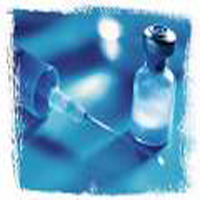FIFA today agreed to adopt the World Anti-Doping Agency’s (WADA) revised drug testing code, thus avoiding another potential row over football’s future in the Olympics.
FIFA president Sepp Blatter met today with new WADA chief John Fahey and signed a letter of intent to adopt code, which will take effect on January 1 next year.
”FIFA and WADA share the common objective of fighting doping and we will continue to do so through all possible means,” Blatter said at a signing ceremony at FIFA headquarters in Geneva.
FIFA is expected to ratify the code at its Congress on May 29-30 in Sydney, Australia, where Fahey will be a guest.
”Even prior to the formation of WADA nine years ago, FIFA was involved in doing something about getting rid of cheats in football,” Fahey said.
”We will collaborate and share information so that each of us can achieve the objective we both seek.”
FIFA and WADA, under previous president Dick Pounder were often at odds over doping sanctions and other issues and at one point were threatened with explusion from the Olympics – the organisation’s second most important tournament after the World Cup – unless they agreed to sign the code.
Fahey took over as WADA president on January 1.
The new WADA code was endorsed by sports federations in November at a world doping conference in Madrid, Spain, though FIFA opposed certain measures affecting team sports, including whereabouts issues.
Blatter, who is a member of the WADA board of governors and a senior member of the International Olympic Committee, welcomed the inclusion of more flexible sanctions in the new code.
These include the possibility of reduced penalties for minor offenses and sanctions not applying until an athlete or player has missed three doping tests.
FIFA and WADA leaders were taking part in a meeting later Friday of the International Team Sports Federation.
The talks included regulations for athletes and players who must declare their whereabouts for testing even though a squad might not be selected until a short time before a championship.
Further negotiations will also take place before full ratification in May on whether players serving doping suspensions can continue to practice with their clubs.
